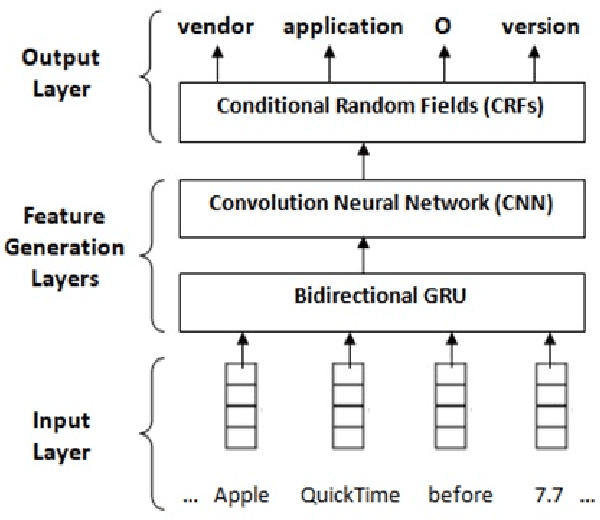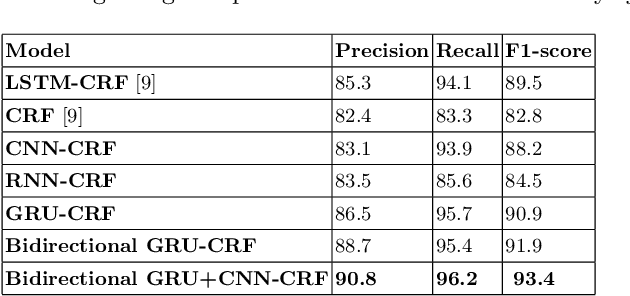Sriram S
Deep Learning Approach for Intelligent Named Entity Recognition of Cyber Security
Mar 31, 2020

Abstract:In recent years, the amount of Cyber Security data generated in the form of unstructured texts, for example, social media resources, blogs, articles, and so on has exceptionally increased. Named Entity Recognition (NER) is an initial step towards converting this unstructured data into structured data which can be used by a lot of applications. The existing methods on NER for Cyber Security data are based on rules and linguistic characteristics. A Deep Learning (DL) based approach embedded with Conditional Random Fields (CRFs) is proposed in this paper. Several DL architectures are evaluated to find the most optimal architecture. The combination of Bidirectional Gated Recurrent Unit (Bi-GRU), Convolutional Neural Network (CNN), and CRF performed better compared to various other DL frameworks on a publicly available benchmark dataset. This may be due to the reason that the bidirectional structures preserve the features related to the future and previous words in a sequence.
 Add to Chrome
Add to Chrome Add to Firefox
Add to Firefox Add to Edge
Add to Edge